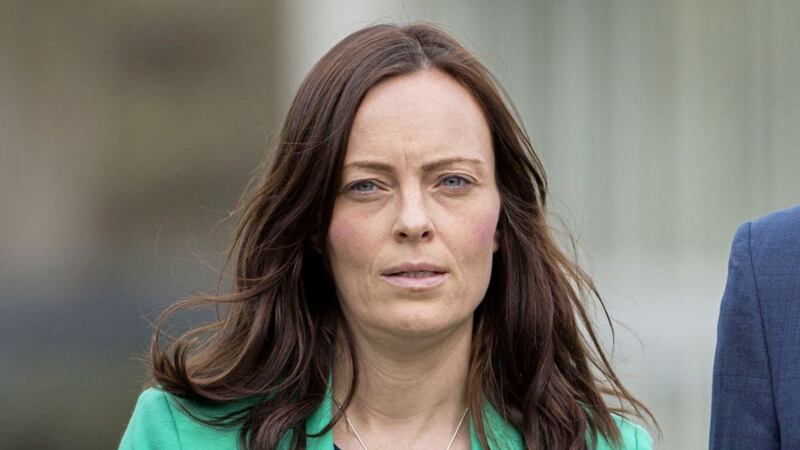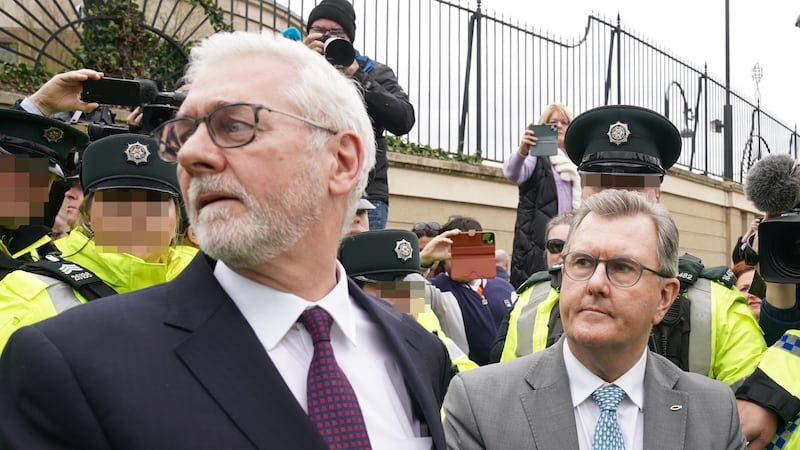NATIONALISTS have responded without enthusiasm to the prospect of a consultative or 'shadow' assembly that would operate in the absence of devolution.
While there's been no official proposal for MLAs to sit at Stormont with a scrutiny rather than legislative role, it is understood to be an option being considered by the Secretary of State Karen Bradley as the chances of restoring power-sharing in the short-to-mid term look increasingly remote.
Advocates of the plan argue that it would help pave the way for a restoration of full-blown devolution.
On Monday night, Mrs Bradley asked the Stormont parties for their proposals on how decision making and scrutiny can be carried out "on a cross-community basis" in the continued absence of an assembly and an executive.
"Let me be clear that this is no way affects my commitment to the Belfast Agreement nor my commitment to continue to work to remove the barriers to the restoration of devolution," she told MPs on Monday night.
DUP deputy leader Nigel Dodds indicated in his response to the secretary of state's statement that his party would support the idea of a shadow or interim assembly.
He said he welcomed Mrs Bradley's willingness "to look at arrangements providing for local decision making and scrutiny on a cross-community basis".
Ulster Unionist Robin Swann was also amenable to the prospect of MLAs sitting in a consultative capacity.
He told The Irish News: "The government must consider all options including a voluntary coalition or a grand council type assembly.
"If that means direct rule ministers temporarily bringing legislative proposals to the committees for scrutiny in order to ensure a role for locally elected politicians, then so be it."
However, Sinn Féin is less enthusiastic about the idea, stressing that the fastest route to the restoration of devolution is "to deal with the issue of rights".
"The governments should move immediately therefore to convene the British Irish Intergovernmental Conference to deal with the equality and rights issues which are at the heart of the political impasse in the north," a spokesman said.
He said there had been no proposals yet for a shadow assembly.
"But any proposals brought forward by the British government will be measured against the provisions of the Good Friday Agreement," the spokesman said.
"We need a mechanism to end the denial of rights not an attempt to put the assembly into suspended animation while the British government continue to support the DUP’s denial of rights."
SDLP deputy leader Nichola Mallon also rejected the proposal outright.
"Any suggestion that deviates from the Good Friday Agreement, an internationally binding agreement and one endorsed by the majority of people on this island, must be resisted," she said last night.
"All minds must be focused on the restoration of devolution."
Alliance is also unlikely to embrace the idea of a shadow assembly, preferring a focus on "mechanisms that have an actual function", while Green leader Steven Agnew said it would "only serve to lend credibility to direct rule".
"Any move towards direct rule will remove the drive and urgency to getting back to functioning devolution," he told The Irish News.

